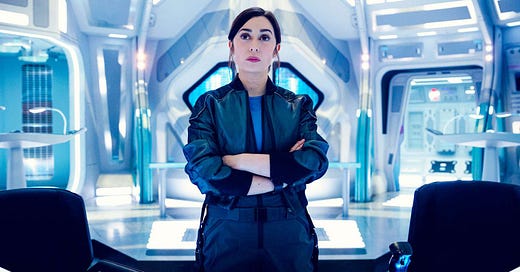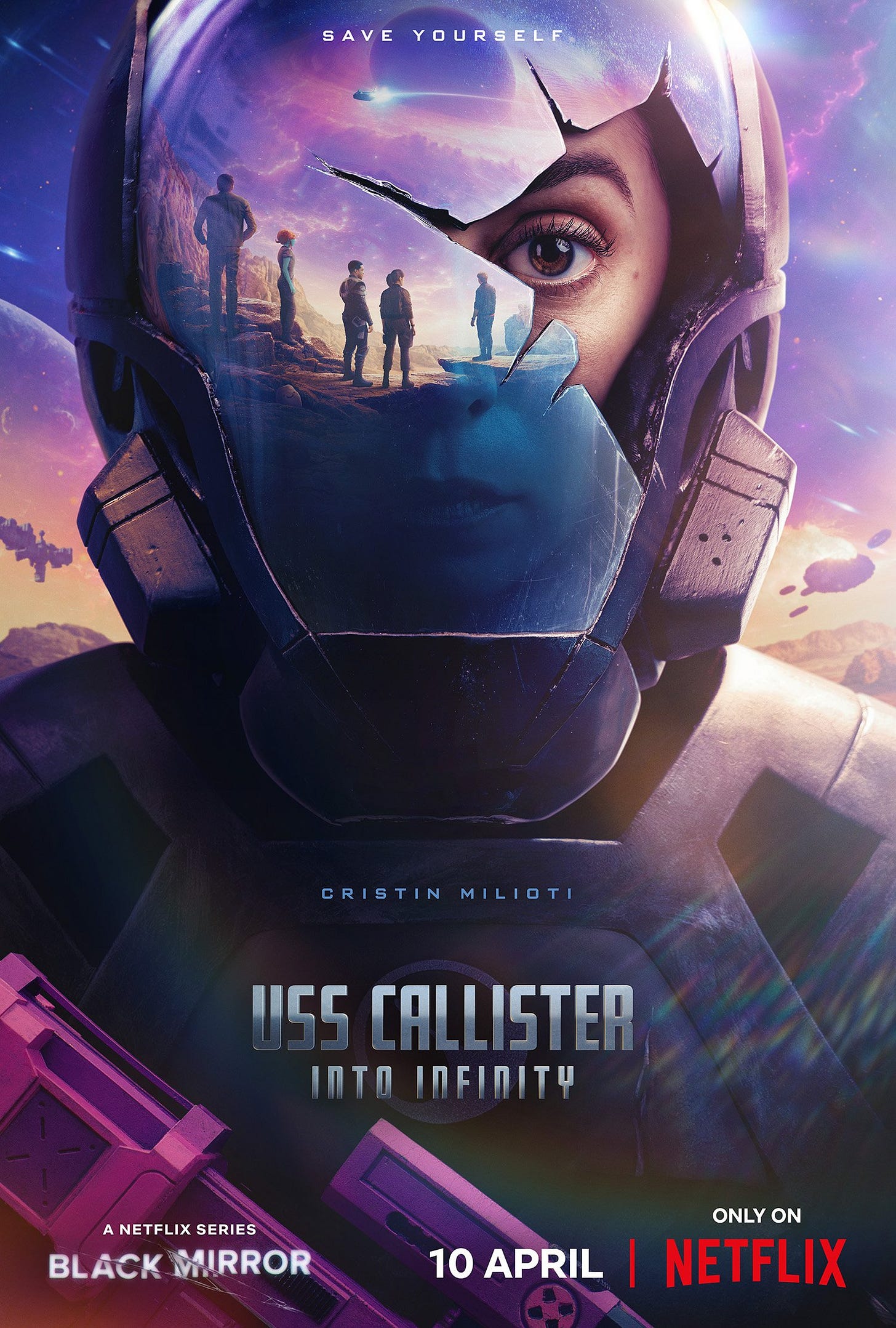Black Mirror - USS Callister: Into Infinity Review
The always-anticipated anthology series expands Its universe with an ambitious USS Callister sequel
As a proud anthology series, Black Mirror typically treats continuity the same way most of us treat gym memberships—enthusiastically ignored. But in season seven the rules have been bent a little from its regular individual cautionary tale format. Enter USS Callister: Into Infinity, a follow-up to the wildly popular season four episode USS Callister that combined space opera with workplace harassment and digital torture.
Picking up where the first episode left off, the digital crew of the titular spacecraft are now loose in the metaverse - a VR nightmare called Infinity - free to roam the expansive universe of the game that came from the very mind that put them there, the stealthily sadistic CTO Robert Daly (Jesse Plemons). But freedom in the metaverse comes with its own challenges. They may no longer be oppressed by Daly, but now they must survive in a world full of real players and the inherent chaos of an open-world MMO. Namely microtransactions and the currency to fuel them. The crew of the USS Callister may be free of their captor, but now the stakes are bigger, the universe is wider, and the metaphors are slightly more…. exhausted. It manages to entertain as if Charlie Brooker and the team binged the entirety of Star Trek, Star Wars, and The Office in the same weekend. Where the original USS Callister was intimate and satirical, Into Infinity shoots for space opera. As a result, Into Infinity doesn’t quite, or quite possibly never could, reach the soaring heights of its predecessor. But of all the existing Black Mirror tales, it was always the one open-ended enough to warrant further exploration.
Visually, it’s impressive stuff. The production design is bold, with high-calibre effects all around, particularly the introduction of human player eliminations. The action sequences rival what you might expect from a Star Wars spinoff, and for once its nice that such action isn’t coming in the form of yet another Jedi on most Wednesdays of the year. Here a world has been built that no longer needs to parody Star Trek to succeed —its a new world that stands on its own, even if it occasionally leans too heavily on genre tropes. You’d never envisage Channel 4 being able to fund an episode like this.
That said, bigger doesn’t always mean better. Clocking in as the longest Black Mirror episode to date (aside from the choose-your-own-anxiety adventure Bandersnatch), Into Infinity occasionally struggles to justify its runtime. Thematically, it isn’t really asking any other questions that were already posed in the original: the nature of digital consciousness, the ethics of cloning, and the blurred lines between autonomy and control. There are nods to corporate corruption and questions of identity in virtual spaces, but these threads often feel like it’s mostly window dressing for laser fights and monologues. Entertaining ones, nonetheless.
Cristin Milioti once again proves herself the standout of the show. Playing both the digital and real-world versions of her character, the performance is carefully layered, bringing the desired complexity to both roles. The rest of the returning cast (minus Michaela Coel) — Jimmi Simpson, Billy Magnussen, Osy Ikhile, Paul G. Raymond, and Milanka Brooks—reprise their roles with charm as if they had never gone away. However, they’re largely confined to familiar territory, with one notable exception of a new antagonist whose arc feels more like a plot device than a revelation.
USS Callister: Into Infinity may not reach the heights of the original, but it succeeds on its own terms as a visually impressive and occasionally thought-provoking space adventure. Unlike most of its Black Mirror brethren, Into Infinity leans more into genre entertainment than philosophical inquiry. And, while that might disappoint those looking for a deeper dive into Black Mirror's usual existential dread, it’s still an enjoyable return to one of the show’s most memorable worlds.






